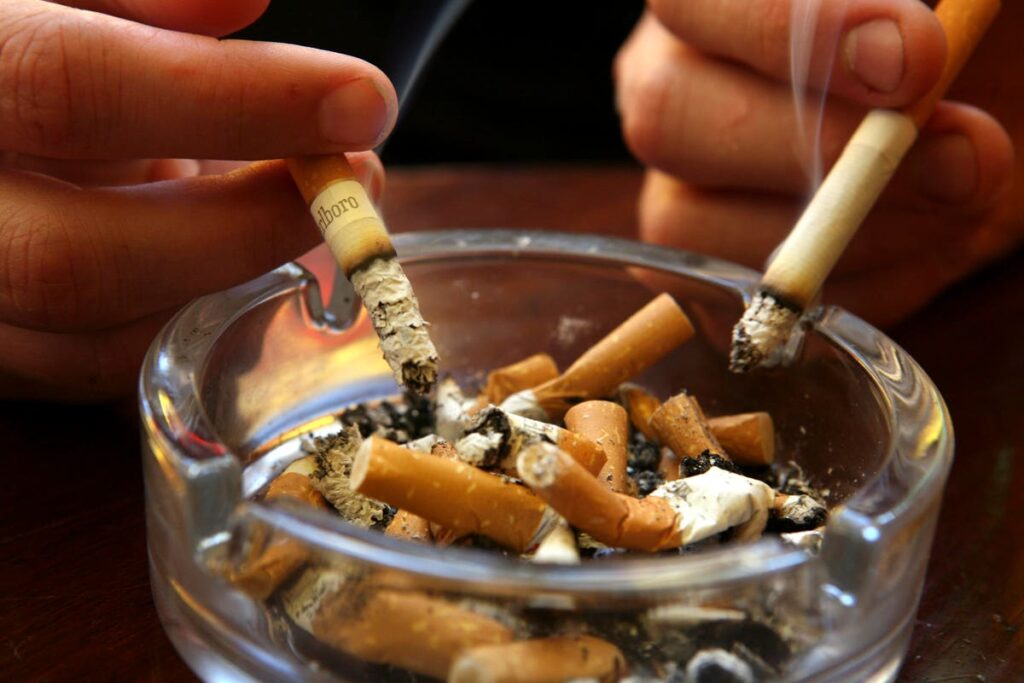A couple smoke cigarettes in a public house in Bath, Somerset, England. (Photo by Matt Cardy/Getty … [+]
Children aged 14 or younger will never be able to legally buy tobacco products in England under a policy proposed this week by prime minister Rishi Sunak.
Sunak wants to ban the sale of cigarettes to anyone born before January 1 2009, mirroring a law announced in New Zealand last year.
If successful, the move could theoretically eliminate smoking in under-30s by 2040.
However, it would not actually prevent young people from smoking, with the burden of the law falling on sellers rather than smokers themselves. Smoking itself would not become a criminal act.
The law would not cover Scotland, Wales or Northern Ireland. But the government says it wants to work with the devolved nations to introduce similar public health measures.
The idea of the rule is to de-normalize smoking — rates of which have already fallen enormously in the country in recent decades.
Over time, it’s hoped this will reduce pressure on the country’s public health service, with fewer people getting sick from smoking-related diseases like lung cancer.
The government estimates that, under the law, up to 1.7 million fewer Brits would be smoking by 2075, saving billions for the country’s public health system by reducing cases of stroke, heart disease and lung disease by up to 115,000.
The economy, ministers say, would benefit from up to £85 billion over the same period, partly in increased productivity from a healthier, longer-living workforce.
The country will also launch a consultation on vaping, which is promoted by its public health services as a useful tool to help people quit smoking.
Previous reports suggested the government would ban disposible vapes altogether in an effort to reduce rates of youth vaping, in a similar move to France.
But for now, the government just says it will seek advice on whether limiting flavored vapes and the display of the devices at shop tills — as well as changing the packaging they are sold in — would “reduce the appeal and availability of vapes to children.”
National Health Service medical director Professor Sir Stephen Powis said in a statement: “Smoking is the single biggest cause of preventable death and costs the NHS billions of pounds each year. Almost every minute of every day someone is admitted to hospital because of smoking.
“This is a momentous public health intervention and we welcome the government’s bold and ambitious action which will lead to longer and healthier lives.”
He said smoking cessation services would also recieve some £140 million ($170 million) in extra funding.
But experts say previous gaps in funding have seen many local stop smoking services shrink in recent years.
Local councils, which provide many such schemes, have experienced major cuts in recent years, for example.
University of East Anglia addiction expert Prof Caitlin Notley told the BBC that people living in the poorest areas were most affected by smoking, and that innovatie solutions were needed to help reach them.
She said: “It is the poorest and most deprived people in our society who continue to smoke tobacco at the highest rates. Tobacco smoking is an inequalities issue.”


